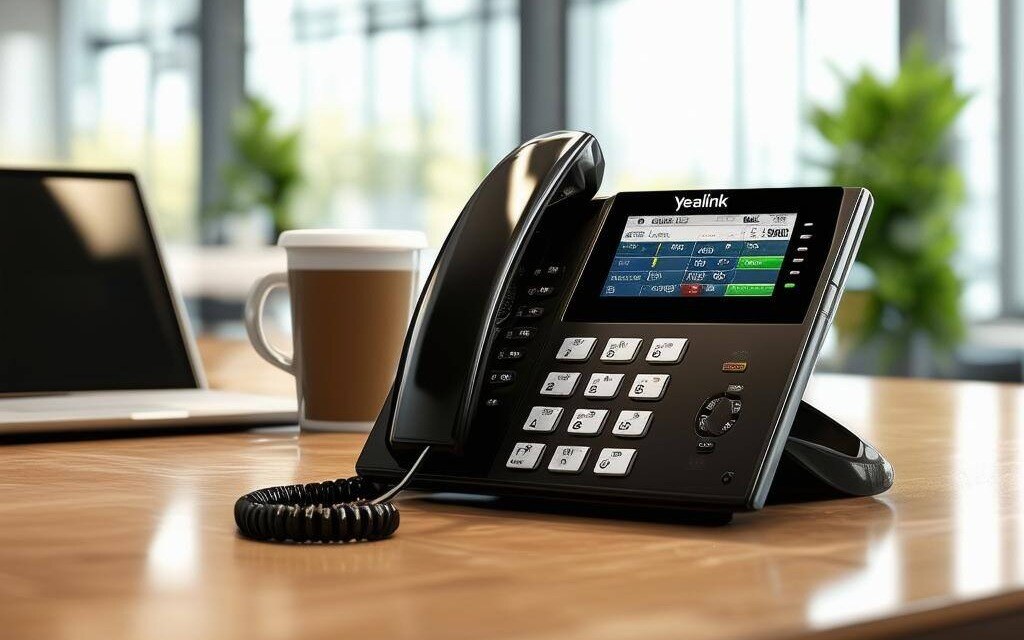For any business that relies on its phone system for sales, service, or support, downtime isn’t just inconvenient—it’s a serious hit to the bottom line. Phone downtime ranks among the most frustrating challenges for businesses, comparable to losing power or experiencing internet outages.
When my customers realize that VoIP phones, unlike traditional premise-based phones systems, rely on the internet to work, a normal question that pops up is "what happens to my system if the internet dies?"
The good news? VoIP phone systems offer flexibility and redundancy options that weren’t possible with traditional premise-based systems. With VoIP, businesses can ensure that no one hears a busy signal—even when the unexpected happens.
Worried about your phone system during internet outages? Talk to a VoIP expert to ensure you never experience an outage.
What options are available for VoIP phone systems if the internet goes down at my business?
The answer depends entirely on what you decide, but here are 4 simple examples to illustrate some options if you're using either a premise based VoIP system or a hosted VoIP phone system.
Example 1 - Call Failover Options
For small to mid-sized businesses, failover solutions are a simple way to ensure uninterrupted communications during internet outages. Let’s look at an example:
Scenario: Business XYZ in New Jersey has 15 employees working onsite and uses a hosted VoIP system. One morning, the internet goes down. Without a failover plan, customers calling the office number might hear a busy signal. But with VoIP, XYZ can implement options like:
Transfer to Smart Phones
When your internet goes down, your VoIP system can automatically reroute incoming calls to designated smartphones. This solution works well for businesses with smaller teams or hands-on leaders who can handle calls on the go.
- Pros: Easy and cost-effective to set up.
- Cons: Works best for businesses with lower call volumes or highly engaged team members.
Transfer to an Auto Attendant
For businesses with higher call volumes, failover to an auto attendant can keep things running smoothly. This option routes calls to an automated system that provides customers with options, such as connecting to an employee’s voicemail or being redirected to a smartphone.
For example, a customer calling during an internet outage could hear:
"Thank you for calling XYZ Company. Press 1 to leave a message, or press 2 to speak to a representative."
The auto attendant then redirects the call to the appropriate smartphone.
-
Voicemail on-the-go: VoIP systems can email voicemails to employees, so they can listen and respond promptly—even during an outage.
-
Caller ID flexibility: Employees can use their smartphones to make outbound calls, and the recipient will see your business name and number, preserving your professional image.
-
Pros: The customer experience remains seamless. Most won’t even realize there’s been an outage.
-
Cons: Employees may need to use personal devices, which could cause resistance unless the business provides company-owned phones.
Example 2 - Backup Internet Connections
For businesses in areas with access to multiple ISPs, having a secondary internet line ensures continuity during outages.
Example: Business XYZ uses Comcast as its primary internet provider and Verizon as a backup. If Comcast’s service fails, all calls are seamlessly rerouted through the Verizon connection.
- Pros: Customers and employees experience zero disruptions. Office phones continue ringing as usual.
- Cons: Requires access to two internet providers, which isn’t always available. This setup also involves higher costs for the additional internet line and potential IT configurations.
Example 3 - Transferring to Additional Offices
For businesses with multiple locations, calls can be transferred to another office during an outage. This option is especially useful for companies with well-trained staff who can handle calls from any location.
Example: A business with separate offices for sales and service can redirect calls to the other location if one office experiences an outage. However, it’s important to ensure staff at the receiving location are equipped to handle the redirected call types.
- Pros: An excellent option for businesses with multiple locations and cross-trained staff.
- Cons: May not work well if the receiving location specializes in different tasks or services (e.g., service calls routed to a sales office).
Example 4 - Dedicated VoIP Only Internet Line
For businesses that need a rock-solid backup plan, a dedicated VoIP-only internet line is a game-changer. Known as an MPLS circuit, this solution provides a direct connection between your office and the data center hosting your VoIP service. It bypasses public internet entirely, ensuring high-quality and reliable communication.
Example: A large business with 50+ employees invests in an MPLS circuit to guarantee uptime. Even if their primary internet fails, their dedicated VoIP line ensures uninterrupted service.
- Pros: Virtually eliminates the risk of phone downtime. Call quality remains crystal clear.
- Cons: Costs between $300–$425/month on top of your regular internet and VoIP fees, making it less ideal for smaller businesses.
Flexibility of VoIP phone systems is key for when the internet goes down at your business.
Traditional phone systems, while reliable, don’t offer the same level of redundancy or flexibility as VoIP systems. With VoIP, you can customize your failover options to suit your business needs and budget.
Key Takeaways:
- Failover options like smartphone routing and auto attendants ensure you never miss a call.
- Backup internet connections and MPLS circuits provide added reliability for businesses that need uninterrupted service.
- VoIP systems empower businesses to adapt and respond quickly to challenges like internet outages.
When the internet goes down, your phone system doesn’t have to. VoIP technology gives you the tools to keep your business connected, no matter what.
Need Help Creating a Reliable VoIP System for Your Business?
At TeleCloud, we specialize in creating VoIP solutions tailored to your unique needs. Whether it’s setting up failover options, backup internet, or dedicated circuits, we’ll ensure your phone system is ready for anything.
Schedule a Free Consultation and let’s build a VoIP system that works for your business—even when the internet doesn’t!






